Sweeteners are substances used as food additive sugar substitutes. Known as one of the "white poisons", with time the Industry invented an alternative to the product from sugar beets and sugar cane. The latest sweeteners are sucrose, fructose, glucose, maltose, lactose, glycerin, saccharin, cyclamate, aspartame, acesulfame, xylitol, sorbitol, mannitol, izomaltitol, lactitol, hydrogenated glucose syrup, glucose-fructose syrup, etc..
Generally, all sweeteners can be divided into two groups: natural and synthetic. Considered natural are fructose, sorbitol and xylitol. They are completely absorbed by the body and, like ordinary sugar provide energy. A Their harm is minimal, but in contrast, they are very caloric.
Acesulfame potassium has very little energy and is absorbed. The most common and widely used sweeteners are sucrose, glucose, fructose, lactose. Known are about 1, 700 natural and synthetic sweeteners. Some are mixtures of substances. However, when you mention sweetener in our minds most often resurface two substances - saccharinate - and aspartame E954 - E951.
History of sweeteners
The history of sweeteners began in 1879 when in a American professor's lab worked Rams Russian immigrant Constantine Falberg who accidentally discovered the sweet taste of the preparation that develops - sulfaminbenzol acid. So by sweet compounds sulfaminbenzol acid was synthesized from saccharin. 20 years later, it was used to sweeten foods and beverages, up until today, when saccharin is considered "the oldest sweetener".
Further in the story follows a ban on the production of saccharin because of corporate interests, but during World War II production of saccharin was revived due to lack of regular sugar. The taste was slightly bitter and is now being rectified by modern production technology.
The sweeteners industry is rapidly developing. Even today, people in the world obsessed with low-calorie food, often consume large amounts of sweeteners without interest if it is harmful to them. However sweeteners have no calories, are cheap and one box replaces from 6 to 12 kg of sugar.
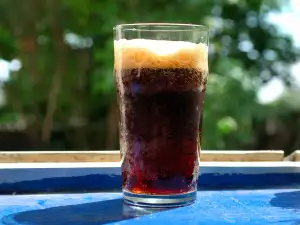
Types of sweeteners
Saccharin E954. As already mentioned, saccharine is the oldest known artificial sweetener. It is 300 times sweeter than sugar (sucrose) and approximately 2 times sweeter than aspartame. It has half the sweetness of sucralose. After use, feel for a special metal bitter taste in the mouth for some time after consumption. Often this is combined with a sweetener cyclamate in combination to enhance 1:10 palatability. Not absorbed by the body, has no calories, but there are studies on laboratory mice, demonstrating his injury.
Aspartame E951. Aspartame is widely used by the food industry. Everything that has the label "light" is from the addition of aspartame. It means that this sweetener is put in huge amounts of beverages, snacks, sweets, alcohol, desserts and "diet" foods and even chewing gum. Aspartame, which came out in 1965, is used in over 6000 products. Approved in the early 80s as an alternative to saccharin and cyclamates. It is known under the trade name Nutra Sweet. Aspartame is destroyed when heated and therefore can not be used in confectionery.
In certain technological process - pH6 (acidic environment) aspartame can break up a toxic compound. Many horrific consequences that can be caused by aspartame. According to several studies, it leads to headaches, mental disorders, including cancer of the cervix, etc.
Acesulfame K - E950. This sweetener was discovered accidentally by chemist Karl Klaus in 1967 in Germany. It is 180-200 times sweeter than sugar (sucrose), and its sweetness is approximately the same as aspartame. However acesulfame is half as sweet compared to saccharin and has quarter the sweetness of sucralose.
After consuming this sweetener, expect a metal bitter taste in the mouth for some time after consumption. It contains no calories and is not absorbed by the body. There is little evidence that it is carcinogenic or that it is harmless.
Cyclamate E952. Cyclamate was discovered in 1937 by American University graduate student Michael Information Illinois. Cyclamate is the sodium or calcium salt of Cyclamen acid. It is 30-50 times sweeter than sugar (sucrose) with 1/4-1/5 weaker taste of aspartame and 8-10 times less potent than saccharin and acesulfame. The taste of cyclamate very similar to that of sugar. Often mixed with saccharin to improve deficiencies in taste. This sweetener has no calories and has low absorption by the body. Laboratory studies with rats demonstrated the occurrence of testicular dystrophy after consuming cyclamate.
Dangers of sweeteners
Hand on heart, we can not name the health benefits of using synthetic sweeteners, but in contrast, the list of potential harms is long.
Aspartame is used in people with diseases that are accompanied by disturbances in the metabolism of phenylalanine. Furthermore, many studies have shown that through the use of sweeteners not only can prevent weight loss, but just the opposite - we gain weight.
This is due to the mechanism of processing of sugar in our body. Taste receptors send a signal for starting the sugar, then the production of insulin starts and the burning of sugar contained in the blood activates. This drops sugar levels significantly. Meanwhile in the stomach, which is also ready for receipt of sugar in the body, carbohydrates expected.
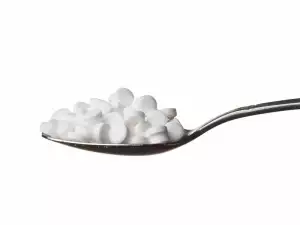
Upon consumption of sweeteners instead of sugar, the stomach does not get calories. The body remembers this situation and after receipt of carbohydrates in the stomach gets a powerful release of glucose, leading to the production of insulin and fat. So by reducing calorie consumption by users, we stimulate our body to gain extra pounds.
Some sweeteners along with aspartame cause headaches, apathy, nervous disorders and many other unpleasant conditions. Some sweeteners can cause headaches.
Benefits of sweeteners
Benefits for our body by the use of sweeteners may be considered only if it comes to natural ones. They are completely absorbed by the body. Glucose-fructose syrup is a good substitute for sugar and honey. Fructose is also useful in this regard.
Stevia extract is a healthy alternative to sugar, or so it says for now. Suitable for consumption by people with high blood sugar. Stevia improves functioning of the pancreas, lowers harmful cholesterol in the blood, strengthens capillaries, improves digestion and concentration.
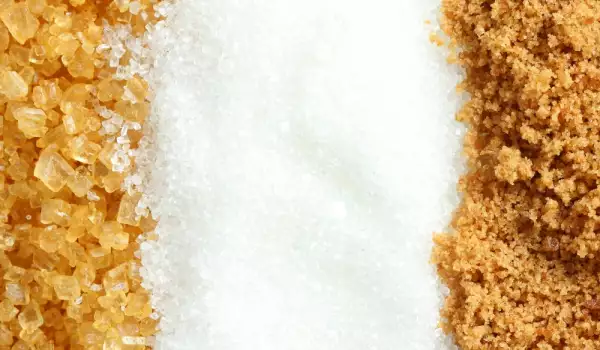







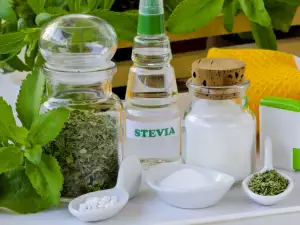
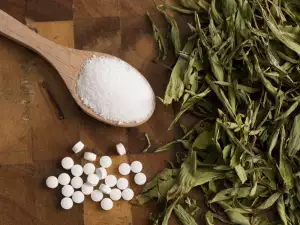
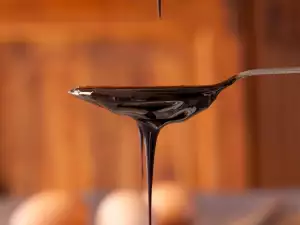
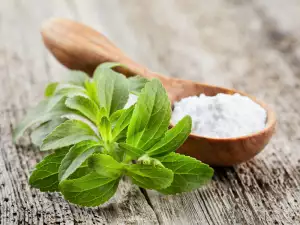





Comments